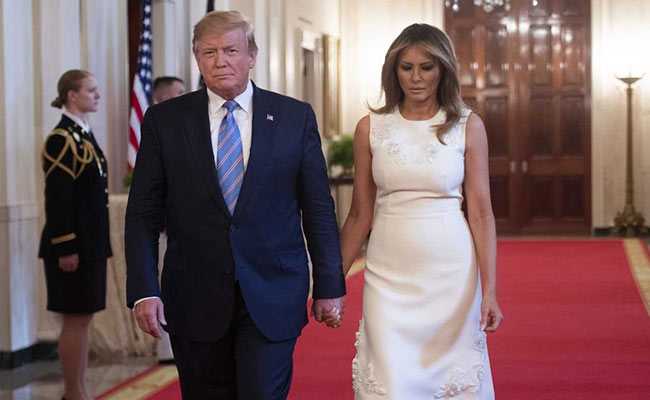Donald Trump won more than 70 million votes, the second highest total in American history. Nationally, he has more than a 47% share of his vote, and looks to have won 24 states, including his beloved Florida and Texas.
He has an extraordinary hold over large swathes of this country, a visceral connection that among thousands of supporters has brought a near cult-like devotion. After four years in the White House, his supporters studied the fine print of his presidency and clicked enthusiastically on the terms and conditions.
Any analysis of his political weakness in 2020 also has to acknowledge his political strength. However, he was defeated, becoming one of only four incumbents in the modern era not to get another four years. Also he has become the first president to lose the popular vote in consecutive elections.
Donald Trump won the presidency in 2016 partly because he was a norm-busting political outsider who was prepared to say what had previously been unsayable.
But Donald Trump also lost the presidency in 2020 partly because he was a norm-busting political outsider who was prepared to say what had previously been unsayable.
Though much of the Trump base might well have voted for him if he had shot someone on Fifth Avenue, his infamous boast from four years ago, others who supported him four years ago were put off by his aggressive behaviour.
This was especially true in the suburbs. Joe Biden improved on Hillary Clinton's performance in 373 suburban counties, helping him claw back the Rust Belt states of Pennsylvania, Michigan and Wisconsin, and enabling him to gain Georgia and Arizona. Donald Trump has a particular problem with suburban women.
We witnessed again in the 2020 presidential election what we had seen in the 2018 mid-term election - more highly-educated Republicans, some of whom had voted for Trump four years ago prepared to give him a chance, thought his presidency was too unpresidential. Though they understood he would be unconventional, many found the manner in which he defied so many customs and behavioural norms off-putting and often offensive.
They were put off by his aggressiveness. His stoking of racial tensions. His use of racist language in tweets maligning people of colour. His failure, on occasions, to adequately condemn white supremacy. His trashing of America's traditional allies and his admiration for authoritarian strongmen, such as Vladimir Putin.
His strange boasts about being "a very stable genius" and the like. His promotion of conspiracy theories. His use of a lingua franca that sometimes made him sound more like a crime boss, such as when he described his former lawyer Michael Cohen, who reached a plea deal with federal prosecutors, as "a rat".
Then there was what critics derided as his creeping authoritarianism, seen after the election in his refusal to accept the result.
A telling moment for me during this campaign came in Pittsburgh, when I chatted with Chuck Howenstein on the stoop of his terraced home. A Trump supporter in 2016, he voted for Joe Biden.
"People are tired," he told me. "They want to see normalcy back in this country. They want to see decency. They want to see this hatred stop. They want to see this country united. And that together is going to bring Joe Biden the presidency."
A political problem for Trump was that he failed to expand his support beyond his core Trump base. Nor did he try hard to do so. In 2016, he won 30 states and often governed as if he was the president solely of conservative, red America. The most deliberately divisive president of the past 100 years, he made little attempt to woo blue America, the 20 states that voted for Hillary Clinton.
After four exhausting years, many voters simply wanted a presidency they could have on in the background - an occupant of the White House who would behave in a more conventional manner. They had tired of the infantile name-calling, the ugly language and the ceaseless confrontation. They wanted a return to some kind of normalcy.
But the 2020 election was not a re-run of the 2016 election. This time he was the incumbent, not the insurgent. He had a record to defend, including his mishandling of a coronavirus outbreak which by Election Day had killed more than 230,000 Americans. In this age of negative partisanship, where politics is often driven by loathing of the opposition, he was not pitted against a hate figure like Hillary Clinton.
SOURCE:CNN



